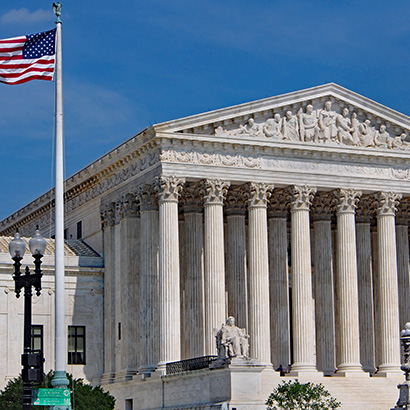
Series
The Administrative State
In a landmark ruling on 28 June 2024, the US Supreme Court expressly overruled the 40-year-old Chevron doctrine, eliminating the requirement that courts defer to agencies’ interpretations of ambiguous statutes.
The Court in Loper Bright Enterprises v. Raimondo held that the Administrative Procedure Act requires federal courts to decide what statutes mean independently of any agency interpretation, although they may still “seek aid” from well-reasoned or long-standing agency interpretations.
This decision affects every industry that is regulated by US federal agencies, and it is expected to usher in more frequent judicial challenges to agency rules, greater scrutiny of agency actions, and a different approach to law-making by Congress.
To help our clients understand, anticipate, and navigate the full impact of the Court’s decision on all of the affected industries in which the firm’s clients do business, we have established a cross-practice, interdisciplinary task force.
The task force has provided and will continue to provide careful analyses of Loper Bright and how it will affect the industries in which K&L Gates clients do business. In addition to the material already on this page, please stay tuned for additional webinars and client alerts.
Thought Leadership
The year 2025 saw significant regulatory activity in the realm of digital assets. The US Congress and financial regulators took steps to create and implement a clear legal framework to facilitate financial transactions using digital assets, and they will continue to do so in 2026.
On 20 February 2026, the US Supreme Court issued its decision in Learning Resources, Inc. v. Trump, consolidated with Trump v. V.O.S. Selections, Inc., addressing whether the President has authority under the International Emergency Economic Powers Act to impose tariffs.
New York state and New York City continue to advance an extensive and evolving framework of workplace regulations.
In this article, Dr. Jan Boeing and Arnaud Dobelle outline the key milestones of the new regulatory framework, its interplay with financial sector rules such as DORA and PSD2, and what the upcoming Digital Omnibus proposal means for organisations deploying AI in Europe.

